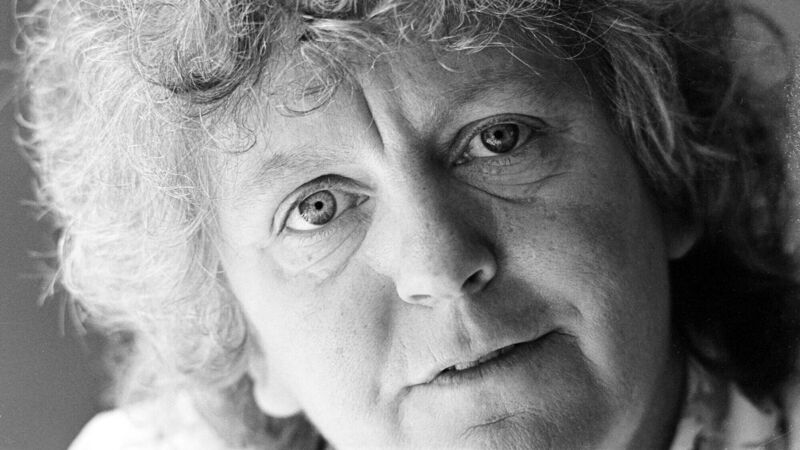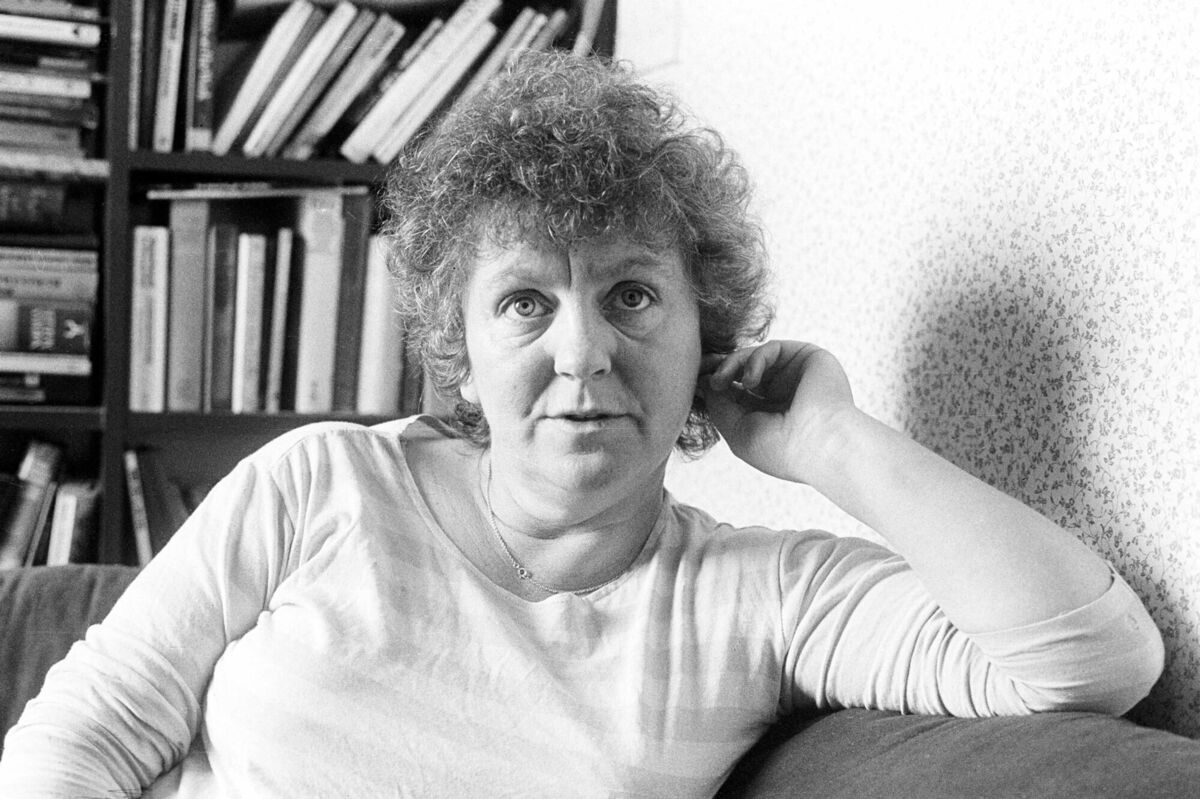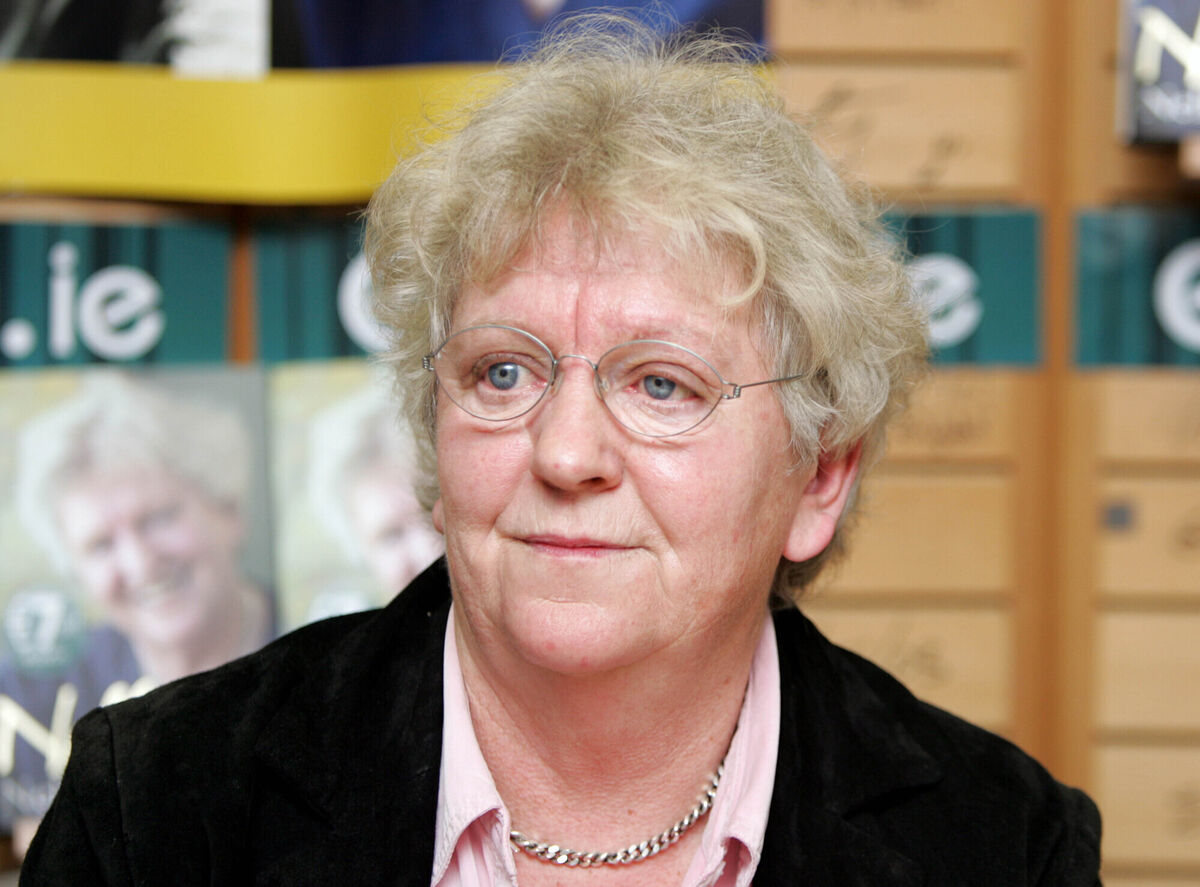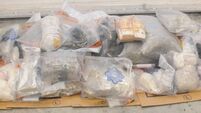Terry Prone: Nell McCafferty exposed the worst trailing wires of old Ireland

Nell McCafferty cared about poor, unheard women and was permanently enraged on their behalf. Picture: Eamonn Farrell/RollingNews.ie
A few weeks after Gay Byrne’s death in 2019, RTÉ did a special in tribute to him. All the great and good. All the famous. All egging to put in their four pence-worth.
And squashed down in a corner on the left, Nell McCafferty being Nell McCafferty. She was at a low boil from the off, furious about something or someone. The younger people close to her, unclear as to who, precisely, this curly-headed angry old lady was, or why she was there, tried to pretend they didn’t hear her heckling.
Ryan Tubridy did, though, and was worried enough to climb the aisle steps to her in an ad break to try to figure out what was eating her and see if he could placate her. It was a wise move because Nell could escalate from heckling to hijacking without warning. Any radio or TV presenter who put a microphone in front of her, particularly in her latter years, needed to be on high alert.
She had become that uniquely Irish phenomenon, the “character,” with all of the boundary-free permissions that status implies.
But before she was that, she was a revolutionary force in journalism. Covering the district courts, back then (and to a great extent today) was a learning curve for journalists. It taught them to pay attention, to learn the judicial rules, to deliver data, not opinion. The accused was an ever-replaceable non-entity with a name and no more than a name.

And then came Nell (nobody who knew her ever called her by anything but her first name). Suddenly, the thieves, the drug addicts and the drunks became people. Not figures in low comedy, but individuals swamped by misfortune and the cruelties of the system.
Douglas Gageby, the legendary editor, gave her a long, if not completely free rein, and for the first time ever, the middle-class readers of that paper gained insight into folk they would probably, in the normal run of things, never encounter, face to face. Nell presented them face to face, heart to heart, with unequalled attention to detail. It was ground-breaking journalism and if she had never done anything else in her life, she should be remembered for it.
Women’s Liberation happened in the '70s, and suddenly, a generation of female journalists — Mary Kenny, Mary Maher, Mary Cummins, Janet Martin and others — created a new awareness. They were fearless, mouthy and courageous, but even within that cohort, Nell was different, constantly sounding the fanfare for the common woman. She cared about poor, unheard women and was permanently enraged on their behalf.
That was what led her, in due course, to write arguably the definitive account of the Kerry Babies tragedy.
If any younger reader of the veers towards considering the “Trad Wife” phenomenon, or thinks maybe feminism or MeToo have gone too far, they need to read that book, in order to come to terms with an Ireland where judges and gardaí could decide a woman could be humiliated, pursued and mortified, even when the concrete evidence proved she could not have done that of which she was accused.
The great thing about Nell was that she was never going to be part of the silent majority, never going to buy into any group of “decent, reasonable people”. Never. You never knew what she was going to say or do, but you knew it was going to be outrageously angry and funny at the same time.
At one party in the home of the founder of Women’s Aid, Nuala Fennell, Nell advanced the proposition that all men should be kept in reservations and used only for sperm donation. Like a fool, I took her on and halfway through my rebuttal, lost my train of thought.
Tom Savage, to whom I was nearly married at the time, helpfully offered: “Terry’s point is—”. Nell leapt to her feet and yelled at him. “Let her speak for her fuckin’ self!” she bellowed. Tom laughed, nodded and made a “fire ahead” gesture at me. I was speechless.

A year or so later, Nell was sent by her paper on a course with me, designed to build radio and TV skills in personnel. She was smart, insightful and constantly helpful to her colleagues when it came to assessment. She was also, clearly, never going to pay a blind bit of attention to what was being suggested, because she was never going to be a reporter or commentator.
She knew her role. Agent provocateur. Always holding a verbal Molotov cocktail, ready to let fly and destroy whatever civilised thesis was being crafted, especially if the craftsman was a fella. She was, as she frequently pointed out, good and sick of the key roles on the broadcasting ship being owned by men, including Brian Farrell, Gay Byrne, and Gerry Ryan.
Nell was unique in talent, but she was also unique in her incapacity to work in teams. She fell away from most of the women’s liberation bodies that began in the '70s. She rescued the damaged Nuala O’Faolain and lost her 15 years later. She went from being a pioneering women’s journalist and feminist to the personality brought in on radio and TV shows to generate laughter or anger or both. The character.
That’s not how she should be remembered.
She was kind and generous, a genius with words, an observer of the unseen, an expose of the worst trailing wires of old Ireland. We might have rolled our eyes at some of her performances, but we then — invariably — paid her that quiet two-word tribute: “Ah, Nell….”





